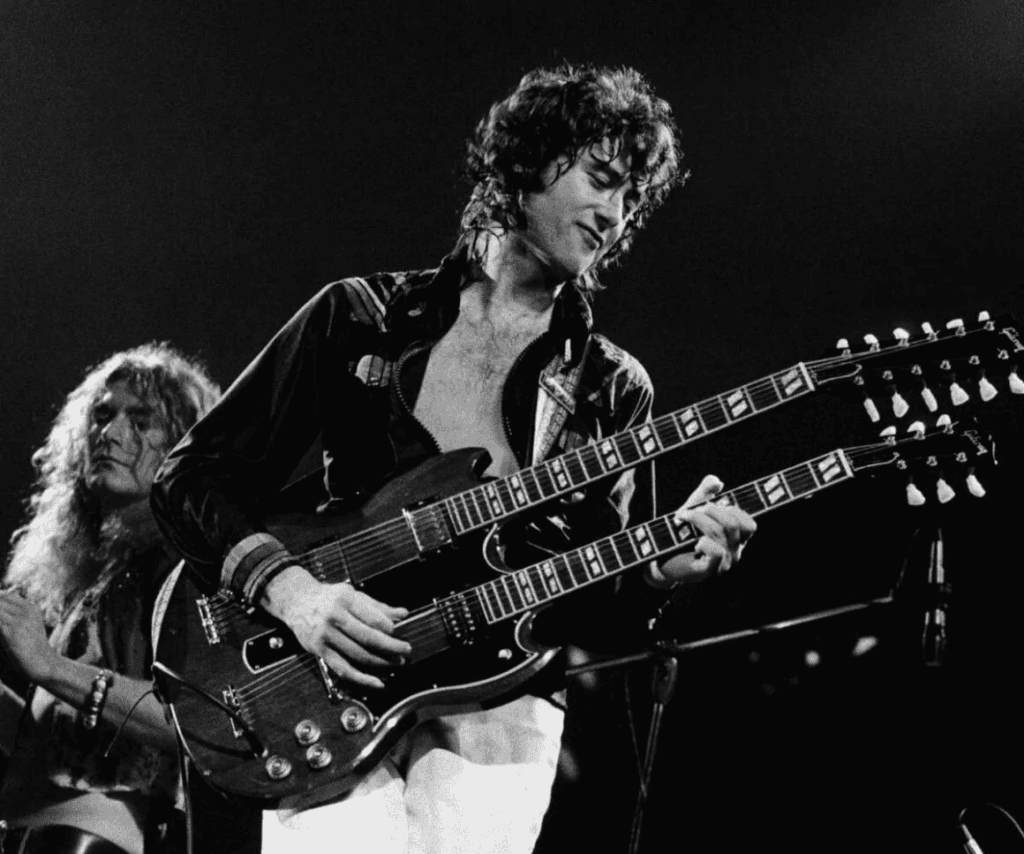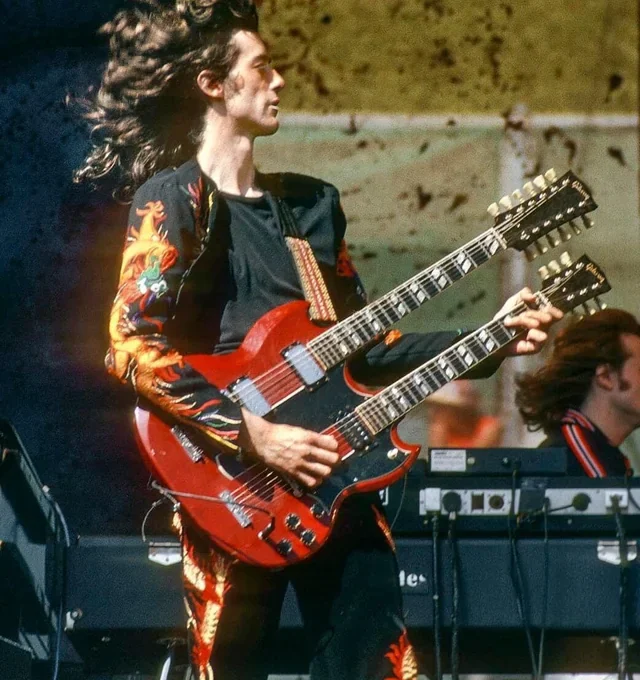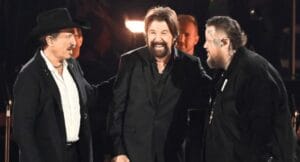Trying to define Jimmy Page is like trying to bottle electricity. He’s not just a guitarist—he’s an alchemist of sound, a visionary who rewrote the language of rock music. If there’s one word that captures his essence, it’s versatile.
From the very beginning, Page pursued music that stirred his soul. Like many of his generation, he absorbed the raw power of blues and R&B, but he didn’t stop there. As a session musician throughout the 1960s, Page honed his craft across an eclectic range of genres—skiffle, psychedelic rock, orchestral pop, and everything in between. That experience broadened his musical vocabulary and deepened his imagination. So when it came time to form Led Zeppelin, he had a clear vision: a band without limits.
He called it “light and shade”—a sonic philosophy that embraced contrast. Crushing riffs were balanced by acoustic delicacy. Thunderous grooves melted into mystical melodies. Led Zeppelin wasn’t confined to one lane; they created an entire universe of sound. And at the center of it all was Page’s guitar—versatile, expressive, and genre-defying.

But Page never claimed the spotlight alone. He built Zeppelin as a brotherhood of brilliance. John Bonham brought the fire. John Paul Jones added depth and finesse. And Robert Plant—armed with that ethereal, golden voice—gave Page the freedom to explore any sonic direction, knowing his frontman could take it higher.
Still, even as Led Zeppelin became the stuff of legend, Page remained a seeker. He continued listening, searching for that rare kind of voice—one that didn’t just sing, but soared with soul, range, and honesty.
And in the mid-1990s, he found it again.
Enter Jeff Buckley.
Buckley’s 1994 debut album Grace didn’t try to sound like Zeppelin. It didn’t need to. Yet it carried the same fearless spirit—effortlessly shifting between blistering intensity and fragile beauty. It was dynamic, emotional, and utterly unpredictable. And at its heart was Buckley’s voice—angelic one moment, volcanic the next.
Jimmy Page was transfixed.
“Probably, he was the best singer that appeared in—I’m not being liberal about this—about two decades,” Page once said in an interview. Coming from the man who helped shape Robert Plant’s ascent, that kind of praise carries real weight.
What Page recognized in Buckley was something deeper than talent. He saw a kindred spirit—an artist who refused to be confined, who led with emotion, and who lived for the music, not the spotlight. For Page, it wasn’t about mimicry or nostalgia. It was about evolution. And in Buckley, he heard a voice capable of pushing rock forward while honoring its emotional roots.
Sadly, Buckley’s life and career were cut tragically short. But in the brief window we were given, he left behind music that moved like a river—beautiful, unpredictable, and powerful.
And in the eyes of Jimmy Page, it was more than impressive. It was the only voice since Robert Plant’s that truly mattered.
Jeff Buckley may be gone, but the echo of his voice—carrying Page’s rare blessing—still resonates like a sacred note in the story of rock.




